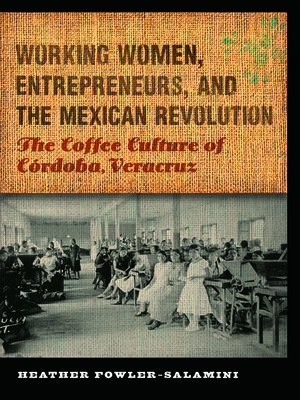Working Women, Entrepreneurs, and the Mexican Revolution
ebook ∣ The Coffee Culture of Córdoba, Veracruz · The Mexican Experience
By Heather Fowler-Salamini

Sign up to save your library
With an OverDrive account, you can save your favorite libraries for at-a-glance information about availability. Find out more about OverDrive accounts.
Find this title in Libby, the library reading app by OverDrive.



Search for a digital library with this title
Title found at these libraries:
| Library Name | Distance |
|---|---|
| Loading... |
In the 1890s, Spanish entrepreneurs spearheaded the emergence of Córdoba, Veracruz, as Mexico's largest commercial center for coffee preparation and export to the Atlantic community. Seasonal women workers quickly became the major part of the agroindustry's labor force. As they grew in numbers and influence in the first half of the twentieth century, these women shaped the workplace culture and contested gender norms through labor union activism and strong leadership. Their fight for workers' rights was supported by the revolutionary state and negotiated within its industrial-labor institutions until they were replaced by machines in the 1960s.
Heather Fowler-Salamini's Working Women, Entrepreneurs, and the Mexican Revolution analyzes the interrelationships between the region's immigrant entrepreneurs, workforce, labor movement, gender relations, and culture on the one hand, and social revolution, modernization, and the Atlantic community on the other between the 1890s and the 1960s. Using extensive archival research and oral-history interviews, Fowler-Salamini illustrates the ways in which the immigrant and women's work cultures transformed Córdoba's regional coffee economy and in turn influenced the development of the nation's coffee agro-export industry and its labor force.







